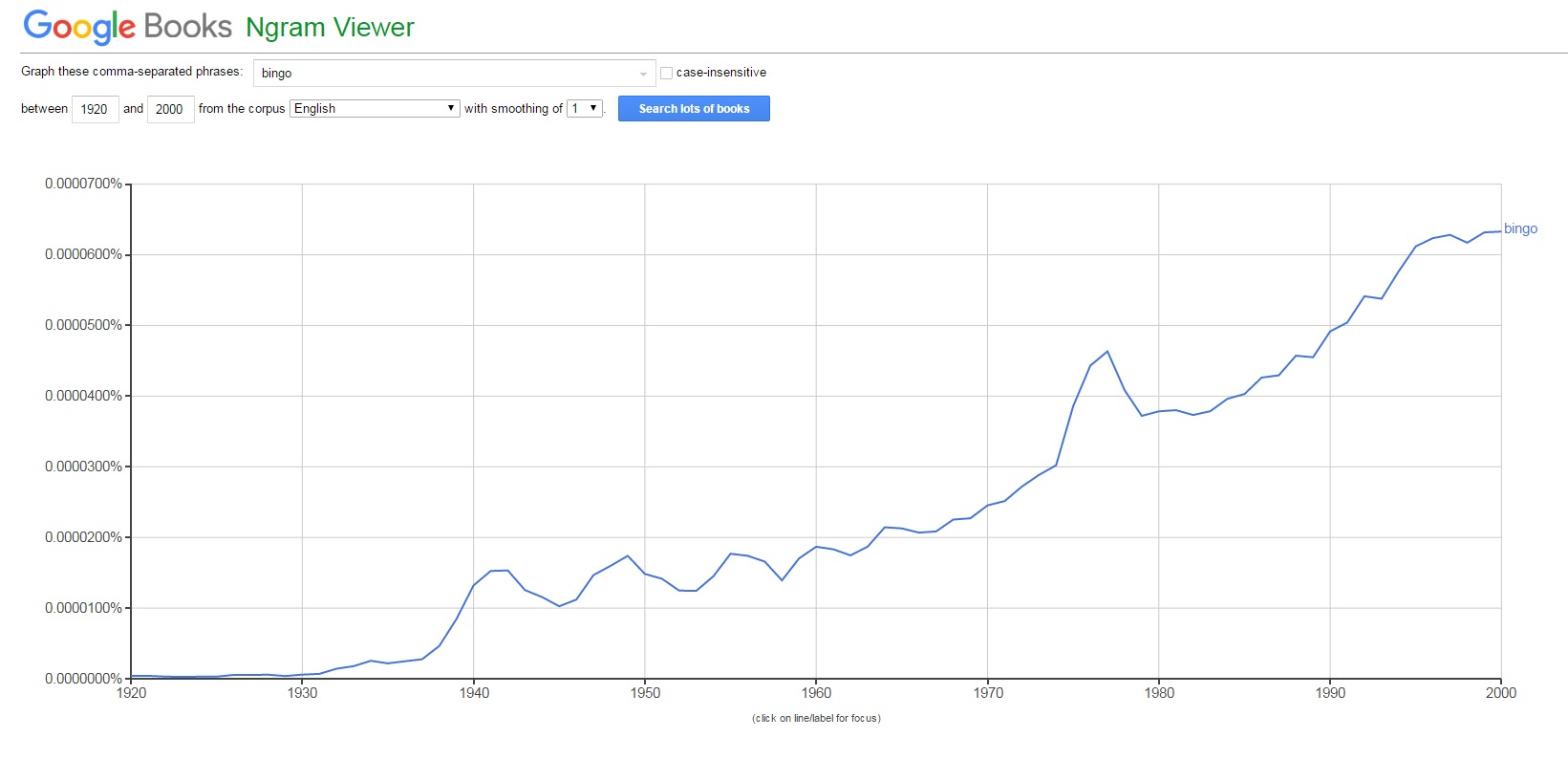I can get swept along when writing, especially when writing dialogue. I’ve heard this state of writing called “flow” and that makes sense to me. Cruising along in my current story, set sometime around 1935 and out of the mouth of one of my characters comes the word “Bingo.” I’ve never used the word outside the game with the balls and whirlywheels myself, but this fictional gent decided to say it in my story. It jolted me out of the story and I thought: Did anyone even use the word Bingo in the ’30s? Just one of the things I worry about.

In my story, I mean “Bingo” in the sense of “you got it” not “I have aligned 5 arbitrary letter-number combinations, give me a prize.” Etymological dictionaries on my shelf say maybe Bingo goes back to 1815, the other says maybe only 1936 without much explanation. Not very helpful. I want my stories to capture language as it was used, to sound natural but be historically…well, probable if not absolutely correct.
Etymological dictionaries saying it was used in 1815, so yes, it would fine in a story set in the 1930s just isn’t good enough. In historical research, we sometimes get to that point of proving if something was at all possible and ignore if it was probable. It’s setting a too low bar for historical accuracy.
This is where Google Books’ Ngram Viewer can be helpful. It uses the collective bajillion-zillion words scanned by Google Books and charts them by year published. You can use it to chart a word or phrase’s popularity in all of GoogleBooks 450 million scanned published works. It’s not definitive, and may not perfectly reflect normal conversation, but certainly helpful to see how frequently the word was used in print. I don’t think it includes newspapers, which would be very useful if it would.
Turns out 1930-something isn’t a great time of the word Bingo. It was around, and was used earlier according to this chart, but has been climbing in popularity since then. The true high-water mark came in 1976, apparently. No idea why that would be, but that’s for someone else to chase. I have a story to get back to.
Like this post? Here’s more about historical research:
How to know Things are Bound to get Worse
How to Research History like a Novelist
About the Author: Benjamin L. Clark writes and works as a museum curator.



4 Replies to ““Bingo.” At the intersection of History & Slang”
Comments are closed.